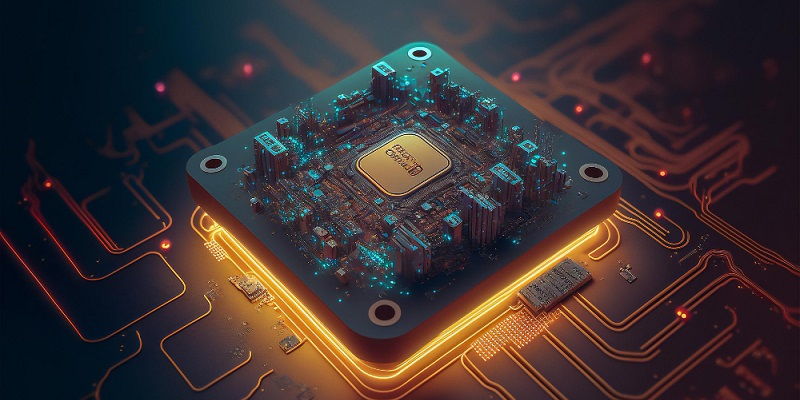Intel is set to revolutionize the market with the highly anticipated launch of their Core Ultra 7 Meteor Lake CPU on December 14th. Building upon their legacy of high-performance processors, the Core Ultra 7 CPU series promises impressive advancements in both CPU performance and integrated graphics capabilities. This article delves into the key specifications, performance comparisons, and power efficiency of the CPU, shedding light on its potential as a game-changer in the tech industry.
Core Ultra 7 165H CPU Specs
The Core Ultra 7 165H CPU, the centerpiece of Intel’s lineup, boasts powerful features. This 16-core chip raises the bar with a maximum boost clock of 5GHz, setting the stage for exceptional performance across a wide range of applications and workloads. With a formidable CPU architecture, the Core Ultra 7 165H CPU is primed to meet the demands of today’s computing needs.
Single-Core Performance Comparison
Benchmark tests have showcased the impressive capabilities of the Core Ultra 7 165H CPU. Scoring a remarkable 2,502 in Geekbench 6, it emerges as a significant competitor in its class. When compared to the Core i7-13700H, Intel’s last-gen CPU, the Core Ultra 7 165H proves to be slightly faster in single-core performance, edging ahead by 2%. Additionally, it outperforms AMD’s equivalent offering, the Ryzen 7 7840HS, by the same margin.
Neck-and-Neck Competition
The battle for supremacy between Intel and AMD intensifies as we compare the Core Ultra 7 165H CPU to the Ryzen 9 7940HS and Intel’s latest CPU. Impressively, both chips achieve a similar single-core performance score of around 2,487, showcasing a fierce rivalry in the high-performance CPU market.
Multi-Core Performance
The Core Ultra 7 165H CPU excels not only in single-core performance but also exhibits remarkable multi-core capabilities. With an astounding multi-core performance score of 12,545, it demonstrates unparalleled processing power across demanding workloads. In this aspect, it finds itself in a similar performance range as the Core i7-13700H CPU, solidifying its position as an all-around powerhouse. Comparatively, the Ryzen 7 APU tends to score about 11,500 in multi-core performance, placing it slightly behind the Core Ultra 7 CPU.
Power Efficiency
The power efficiency of CPUs plays a crucial role in determining their usability and impact on overall system performance. While exact specifications are yet to be confirmed, rumors suggest that the Core Ultra 7 CPU operates within a power range of 15-30W, whereas the AMD counterpart, Ryzen 7 7840HS, operates within a range of 35-54W. The potential power efficiency advantage of the Intel chip may prove to be a compelling reason for enthusiasts and professionals to gravitate towards the Core Ultra 7 series.
Improved Performance and Uplift
Intel’s Core Ultra CPUs are set to differentiate themselves from the 13th Gen CPUs by offering significant improvements in both CPU performance and integrated GPU performance. With advancements in architectural design and manufacturing processes, Intel aims to deliver a seamless computing experience that balances performance and power efficiency.
Intel’s Core Ultra 7 Meteor Lake CPU holds great promise for both consumers and professionals seeking top-of-the-line performance and power efficiency. With impressive specifications and formidable performance, it emerges as a strong contender in the market. Its potential to outperform competing CPUs in both single-core and multi-core scenarios makes Intel’s Core Ultra 7 CPU series expected to have a significant impact on computing landscapes. As we eagerly await the official launch, the tech industry holds its breath to witness the dawn of a new era in processing power.

